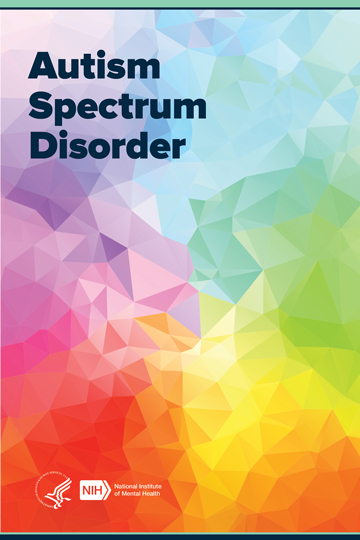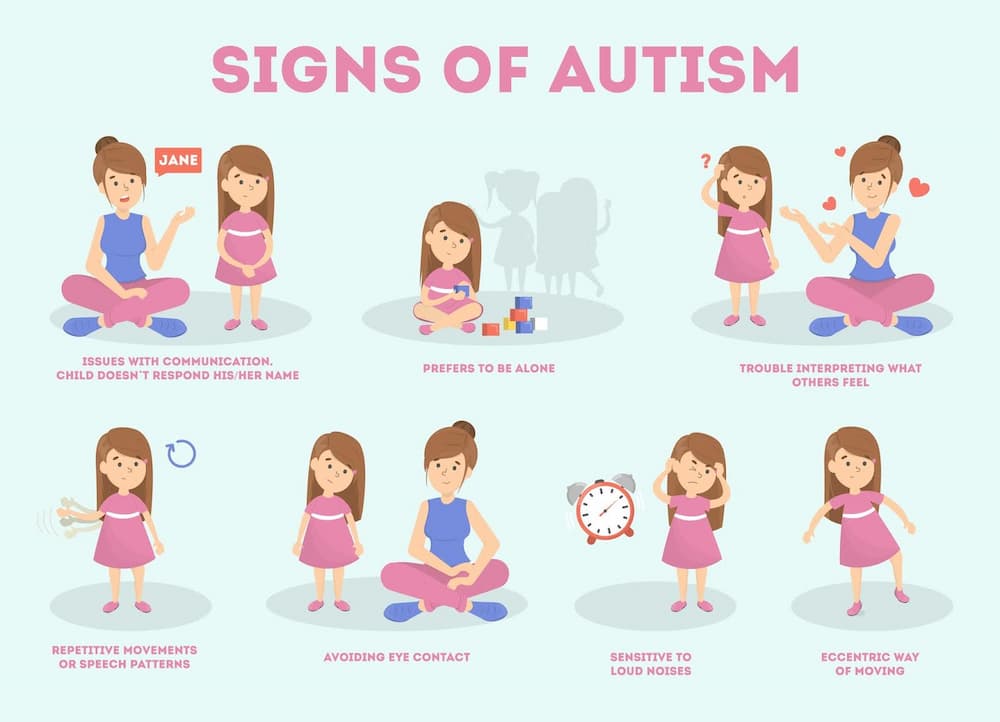Understanding the Impact of Behavioral Autism on Every Day Life and Social Communications
You may not realize just how deeply behavior autism influences day-to-day life and social interactions. People on the range usually navigate a globe filled up with communication difficulties and sensory overload. These difficulties can lead to disappointment and seclusion, influencing their partnerships and overall health.
Specifying Behavior Autism and Its Qualities
Behavior autism, usually described as autism spectrum condition (ASD), incorporates a variety of conditions defined by challenges in social communication, communication, and recurring habits. You might see that individuals with ASD often have a hard time to analyze social hints, which can result in misconceptions in conversations. They may locate it difficult to develop eye call or engage in little talk, making social situations really feel overwhelming.
Interaction problems can materialize in different means, from postponed speech growth to a preference for utilizing less words. By acknowledging these qualities, you can cultivate an atmosphere that advertises acceptance and urges reliable communication, helping individuals with autism prosper in their everyday interactions.
The Spectrum of Autism: Understanding Variability in Behavior
Autism spectrum disorder (ASD) isn't a one-size-fits-all medical diagnosis; it varies extensively among individuals. You might run into people who are extremely verbal and involve quickly in conversations, while others could prefer solitary tasks or connect non-verbally.
In addition, the means people with ASD reply to sensory input can vary considerably; some may be bewildered by bright lights or loud sounds, whereas others flourish in boosting atmospheres. The spectrum additionally consists of differences in social interactions; some individuals might have a hard time to interpret social signs, while others navigate social setups with relative simplicity. Understanding this variability is vital, as it aids you appreciate each individual's one-of-a-kind experience and tailor assistance to their particular requirements, fostering a much more comprehensive setting for everybody.
Interaction Obstacles Encountered by Individuals With Autism
When you communicate with people on the autism range, you may observe their distinct interaction difficulties. They typically face problems with both nonverbal and verbal signs, which can impact their social interactions. Understanding these obstacles is vital for cultivating better links and assistance.

Verbal Interaction Problems
Numerous people on the autism spectrum experience verbal communication troubles that can considerably impact their daily communications. Your quantity, tone, or speed might not line up with social expectations, triggering others to misunderstand your objectives. Recognizing these obstacles can help you and your support network create methods to boost communication and foster far better connections with others in your daily life.
Nonverbal Communication Barriers
Verbal communication isn't the only challenge individuals on the autism spectrum face; nonverbal communication obstacles can be just as substantial. You may find it hard to analyze body language, face expressions, and eye get in touch with, which are necessary for efficient communication. These difficulties can cause misconceptions or false impressions of social signs, making interactions feel frustrating or complex. You might have a hard time to reveal your own feelings via nonverbal means, leaving others not sure of your purposes or sensations. This detach can create feelings of seclusion and disappointment. Acknowledging these barriers is crucial for cultivating understanding and empathy in your communications. By attending to nonverbal interaction, you can discover approaches to boost your social experiences and boost your total lifestyle.
Social Communication Influences
Social communications can frequently really feel overwhelming due to the one-of-a-kind interaction difficulties encountered by people with autism. You might battle with analyzing social signs, making it difficult to comprehend mockery or body movement. This can bring about misconceptions or uncomfortable minutes in conversations. In addition, launching and keeping conversations may really feel challenging, triggering anxiety in social circumstances. You might like structured atmospheres, making spontaneous interactions unpleasant. It's additionally usual to experience problem in participating in tiny talk, which can hinder developing brand-new relationships. Acknowledging these challenges can assist you discover methods to boost communication, such as exercising social abilities in safe setups or utilizing visual help - Aba Therapist Near Me. Recognizing your requirements enables you to navigate social communications with better confidence and convenience.
Social Communication and Partnership Building in Autism
While structure connections can be challenging for people with autism, recognizing their distinct point of views and interaction designs can foster significant connections. You may discover that many individuals on the range prefer direct interaction and might fight with social signs or little talk. By being simple in your communications, you can assist create an environment where they really feel comfortable.
Involving in shared passions can likewise serve as a bridge to much deeper links. Whether it's a hobby, a favorite program, or a shared passion, these typical strings can open doors to friendship.
Every Day Life Routine: Navigating Obstacles and Strategies
Maneuvering day-to-day life routines can be especially testing for individuals with autism, especially when unanticipated adjustments occur. You could find comfort in having a structured routine, as it assists you expect what's next. It's typical to really feel distressed or overloaded when disruptions occur. To navigate these obstacles, take into consideration applying visual schedules or lists. These tools can supply clarity and confidence.
Developing a regimen that includes sensory breaks can likewise be advantageous. This helps produce an understanding atmosphere.
Lastly, method mindfulness strategies to handle stress and anxiety. Simple breathing exercises or basing techniques can make a considerable difference. By integrating these methods, you can enhance your daily routine and decrease disruptions, making life feel extra convenient.
Toughness and Capabilities of People on the Autism Range
Understanding every day life regimens is simply one aspect of the autism experience. Numerous people on the autism range possess remarkable staminas and capacities that set them apart. You could locate that your focus to detail is outstanding, permitting you to succeed find here in tasks that call for accuracy and emphasis. Your ability to believe outside the box can bring about innovative remedies in numerous circumstances.
Additionally, your memory abilities often beam, especially in locations of interest. Autism Therapist. This propensity for preserving information can make you a beneficial source in areas like art, scientific research, or innovation. You may likewise show solid aesthetic reasoning, enabling you to envision complicated concepts and address troubles creatively
Additionally, your special perspective on the globe can foster empathy and understanding in others, improving social interactions. Accepting these staminas not only increases your confidence but also assists others appreciate the diverse skills you give the table.
Producing Comprehensive Settings for People With Autism
Developing inclusive environments for individuals with autism starts with making sensory-friendly areas that cater to their one-of-a-kind requirements. You can also foster chances for social interaction, aiding to build connections and friendships. By making these adjustments, you'll add to a more inviting environment for everyone.
Designing Sensory-Friendly Spaces
While developing sensory-friendly rooms, it's vital to show on the special needs of people with autism. Incorporate quiet zones where people can recharge and pull away when bewildered. Consist of aesthetic schedules or clear signs to help people navigate the area confidently.
Promoting Social Interaction Opportunities
Creating sensory-friendly rooms not only addresses individual convenience but also sets the phase for significant social interactions amongst individuals with autism. To advertise these communications, create comprehensive atmospheres that welcome engagement. Organize structured tasks, like art courses or team video games, that encourage cooperation without overwhelming sensory input. Use visual help and clear communication to aid every person engage comfortably. Urge peer mentoring, matching individuals with autism with supportive peers that can lead them with social scenarios. Additionally, think about hosting normal neighborhood events that commemorate neurodiversity, cultivating acceptance and understanding among all participants. By implementing these methods, you can enhance social opportunities, aiding people with autism build relationships and strengthen their social skills in a secure, inviting environment.

Regularly Asked Inquiries
How Can Buddies Support Someone With Behavioral Autism?
You can sustain a pal with behavioral autism by holding your horses, listening proactively, and valuing their limits. Take part in tasks they enjoy, connect openly, and develop a comfy atmosphere where they really feel valued and recognized.
What Resources Are Offered for Moms And Dads of Kid With Autism?
You can explore different resources for moms and dads of youngsters with autism, consisting of assistance groups, instructional web sites, and regional community solutions. Connecting with other moms and dads can likewise provide useful understandings and shared experiences to aid browse difficulties.
Can Behavioral Autism Adjustment Gradually?

Yes, behavioral autism can transform over time. You could notice shifts in interaction, social skills, and actions as your kid grows. Early treatment and support usually play essential roles in these developmental changes.
Just How Do Sensory Sensitivities Influence Every Day Life?
Sensory sensitivities can make day-to-day experiences frustrating. You may battle with bright lights or loud noises, read what he said bring about tension or avoidance. Finding atmospheres that suit your requirements can significantly enhance your convenience and overall day-to-day live.
What Prevail Misconceptions About Behavioral Autism?
You might believe behavior autism just influences communication skills, but it's more over at this website complex. Many presume individuals do not have empathy or knowledge, which isn't true. Understanding these mistaken beliefs aids foster acceptance and assistance for those on the range.
Behavioral autism, often referred to as autism range disorder (ASD), includes a range of conditions defined by difficulties in social communication, interaction, and repeated actions.Social communications can often feel frustrating due to the one-of-a-kind interaction obstacles encountered by people with autism.Designing sensory-friendly spaces not just addresses individual comfort however additionally establishes the stage for meaningful social communications among people with autism. Urge peer mentoring, pairing people with autism with encouraging peers who can lead them through social scenarios. By carrying out these methods, you can boost social opportunities, aiding individuals with autism develop friendships and strengthen their social skills in a safe, inviting atmosphere.